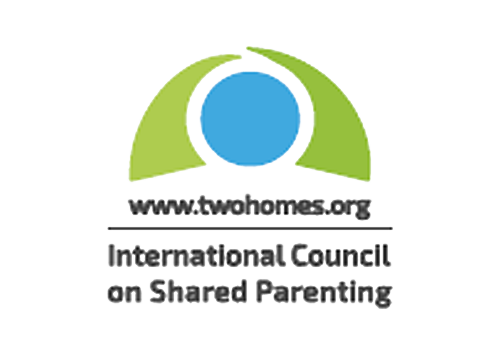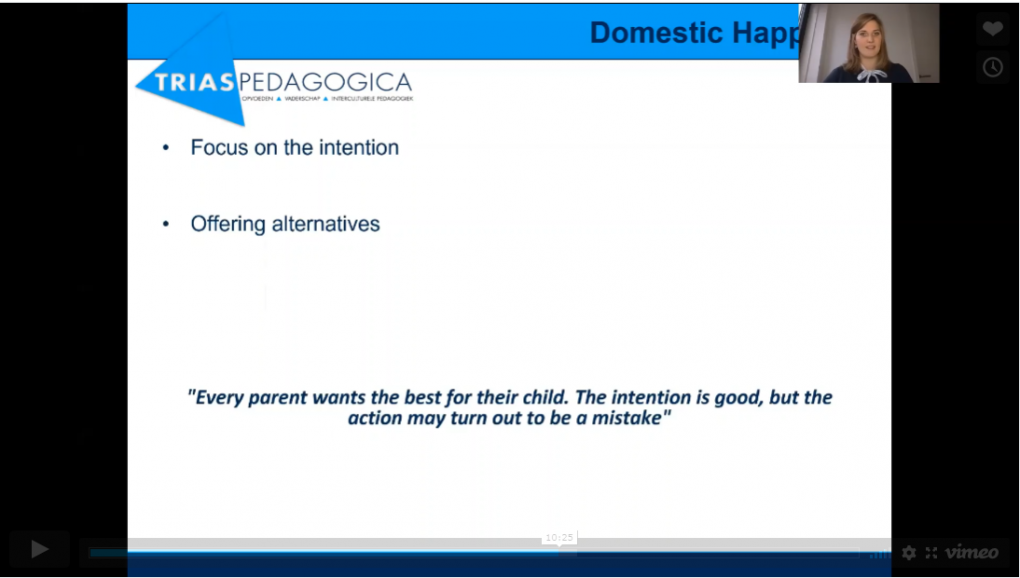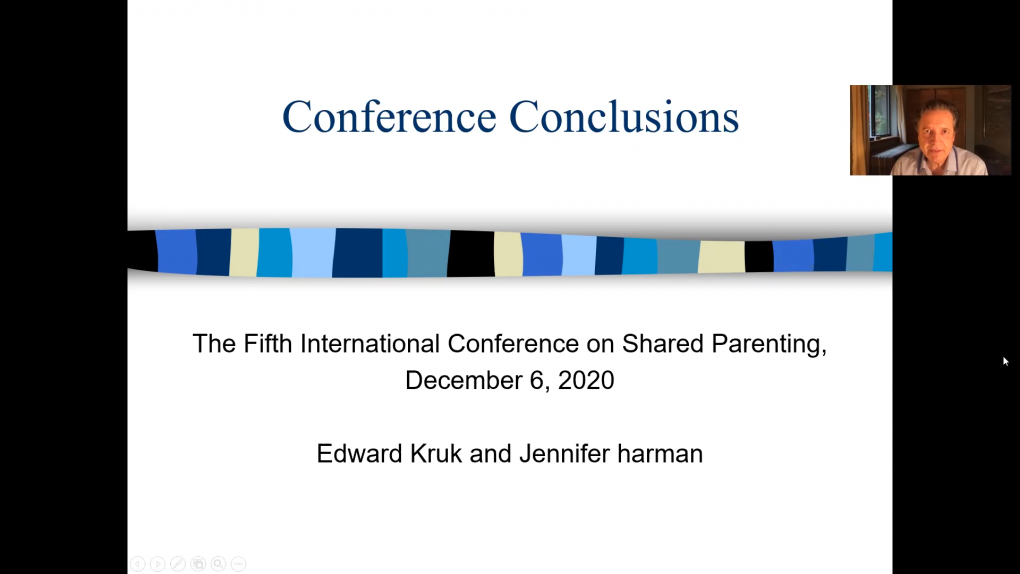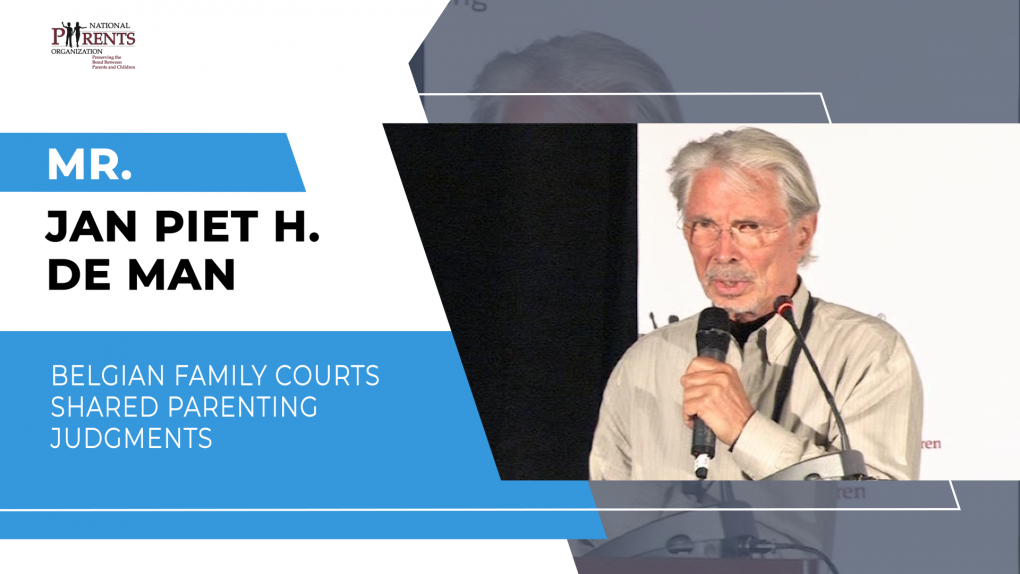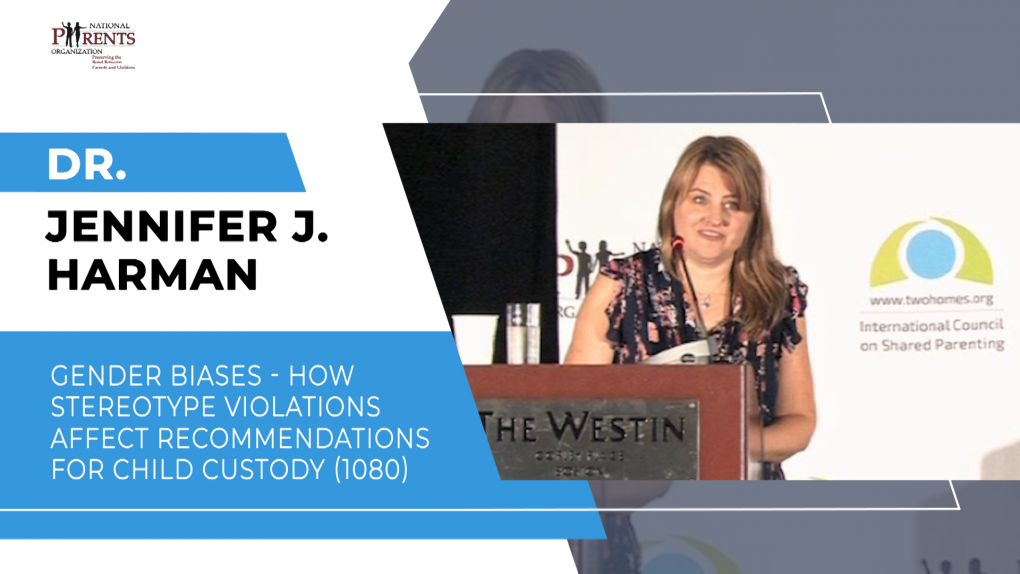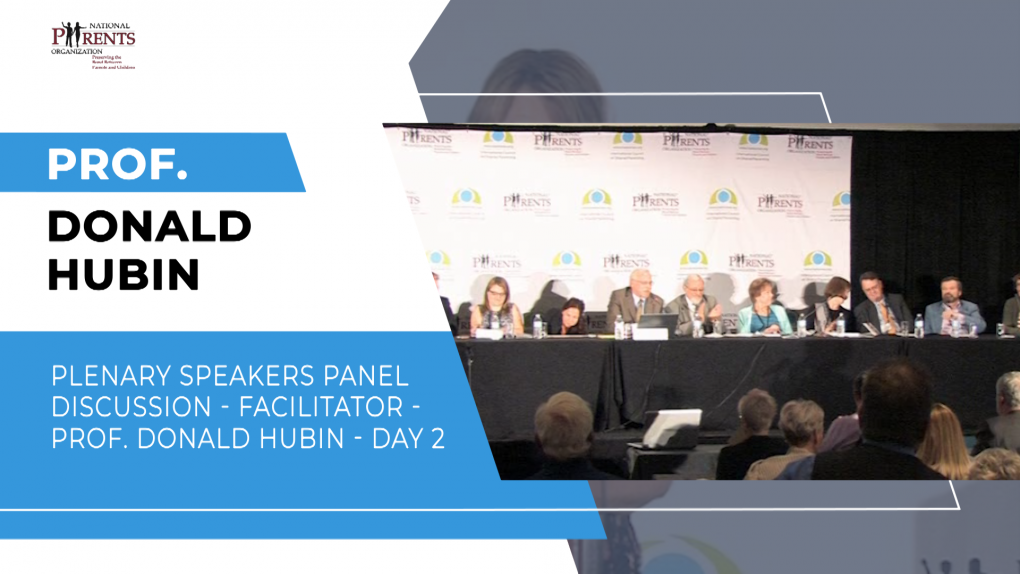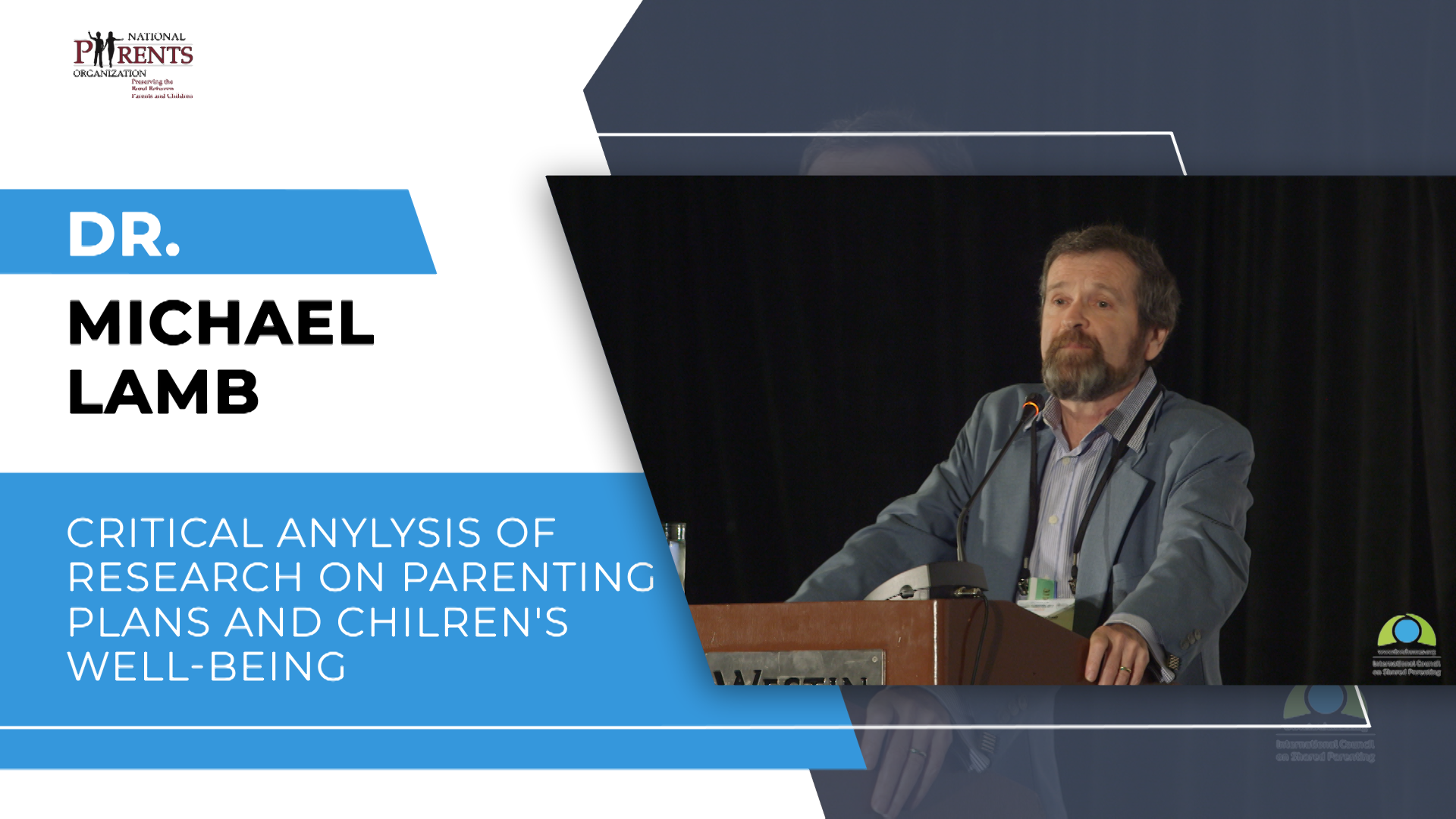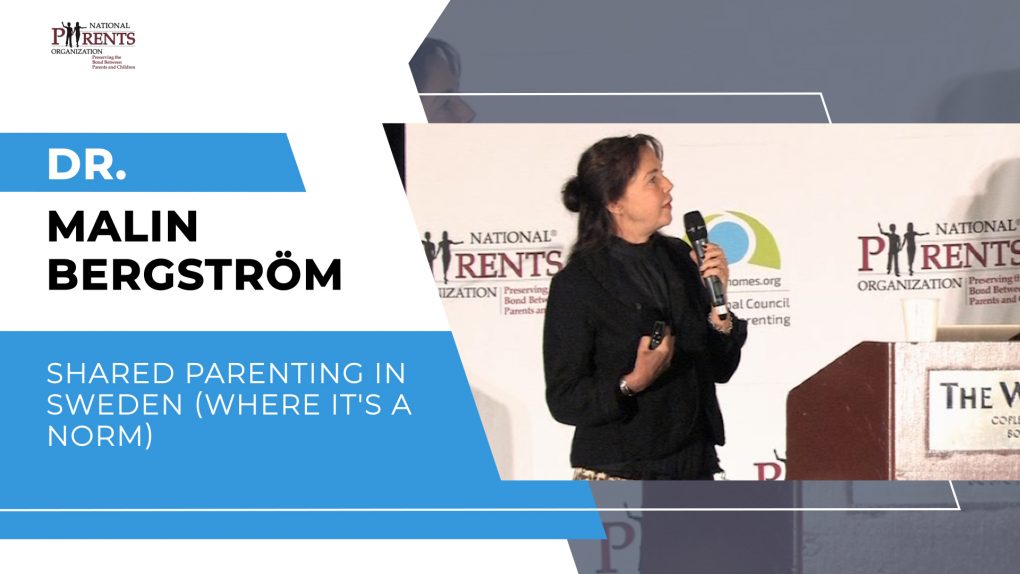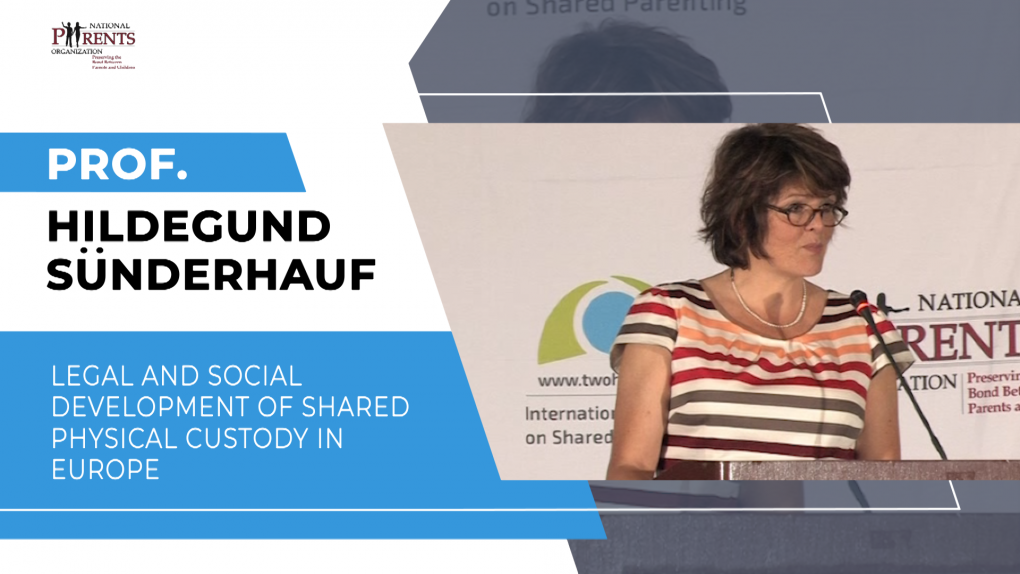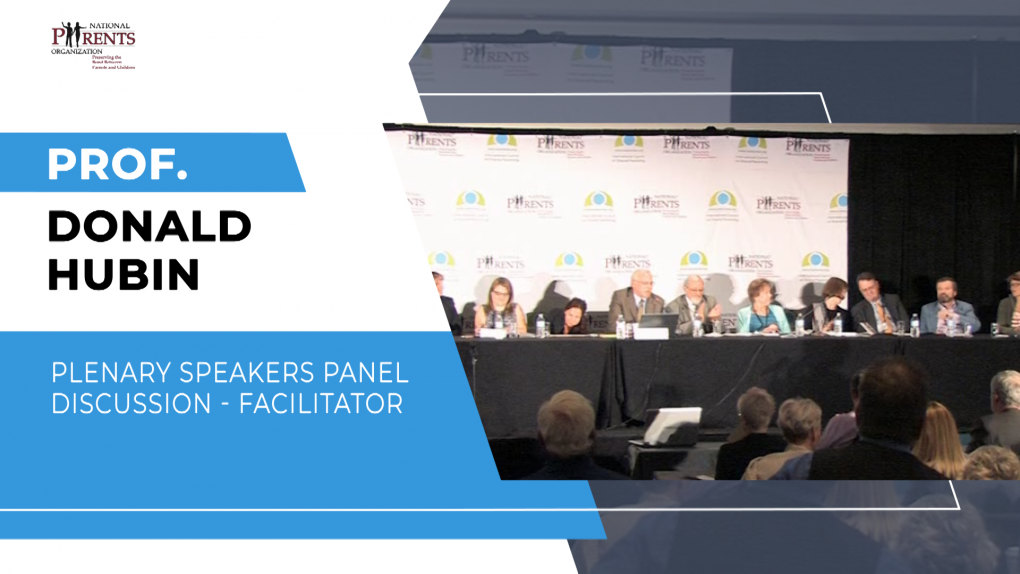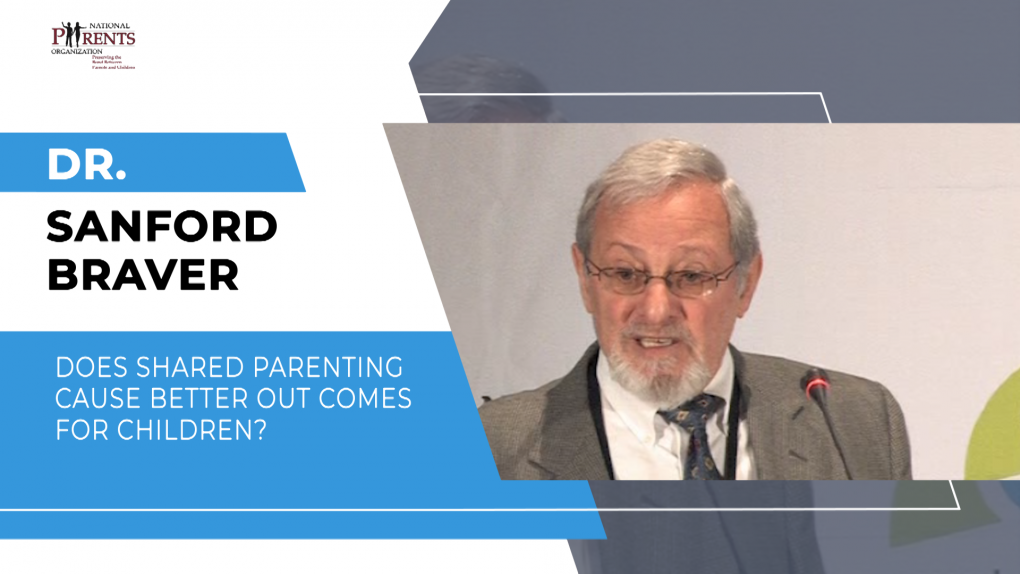Educational Debates with Fathers about Domestic Happiness: A Successful Method in the Prevention of Domestic Violence in the Netherlands
Conference Conclusions ICSP 2020
Edward Kruk, PhD Dr. Edward Kruk is Associate Professor in the School of Social Work at the University of British Columbia, President of the International Council on Shared Parenting, and Co-chair of the Scientific Committee of the Fifth International Conference on Shared Parenting. His research and teaching are focused on child and family policy and practice, and he has published …
Belgian Family Courts shared parenting judgments
Mr. Jan Piet H. de Man
European Institute for the Best Interests of the
Child, Belgium
Abstract: Belgian Family Courts Shared
Parenting Judgments
Gender biases: How stereotype violations affect recommendations for child custody
Decisions about child custody in family courts are largely discretionary, even in jurisdictions where shared parenting laws have been passed. Researchers have long documented how gender stereotypes affect child custody assignment, and both mothers and fathers have argued that they have faced discrimination in family court (e.g., Warshak, 1996)
Plenary Session – Plenary Speakers Panel Discussion Day 2
Facilitator: Prof. Donald Hubin Ohio State University, USA
Speakers:
Dr. Michael Lamb Cambridge University, UK
Prof. Edward Kruk ISCP President, University of British Columbia, Canada
Dr. Malin Bergström Karolinska Institute, Sweden
Prof. Hildegund Sünderhauf Lutheran University of Applied Sciences Nuremberg, Germany
Prof. Patrick Parkinson University of Sydney, Australia
Dr. William Austin Child Custody Services, USA
Critical analysis of research on parenting plans and children’s well-being
In order to understand children’s responses to the divorce or separation of their parents, it is important to understand normative processes of development, including the development of child-parent relationships, stress reactivity, vulnerability and resilience, as well as individual differences in these domains. In that context, it is easier to conceptualize the diverse ways in which children with different backgrounds might be affected by their parents’ separation. My presentation will review published research from this perspective.
Shared parenting in Sweden (Where it’s a norm)
Malin Bergström – Sweden. Prof. Bergström is with the renowned Karolinska Institute, and possesses a unique research database due to the fact that shared parenting is the norm in Sweden. She is a clinical child psychologist with 20 years experience of clinical experience. Malin has written several books about child development, attachment theory and parenting. Her research focuses on children’s health and welfare in shared parenting arrangements. After having conducted mainly epidemiological studies on schoolaged children and adolescents, she is now studying preschool children and infants in shared parenting settings, and conducting longitudinal studies on children in different family types.
Health and wellbeing in Swedish 3-18 year olds in equal shared parenting arrangements. Equal shared parenting arrangements are common in the Nordic countries and the practice is further increasing. Our latest data collections imply that this is now the norm among separating parents. Since 2011 we have studied health and wellbeing in children in shared and single parenting arrangements and are now focusing on preschoolers. In our studies, children in shared parenting have been shown to have better health and wellbeing than those in single care arrangements. In this presentation, I will discuss these findings in relation to the Swedish norms on parent gender equity and whether our results can be generalized to children in other countries. In particular, our new findings on health and wellbeing among 3- 5-year-olds will be elaborated.
Legal and social development of shared physical custody in Europe
Since WW II, the role model in families has changed all over Europe from the “bread earning father and housewife”- ideal to both working parents with shared parental responsibility (legally and physically). This change has been followed by law in a first step already: Countries in Europe have changed from single legal custody after divorce to shared legal custody. As a second step law is changing from sole custody to shared physical custody. Looking at the development in several European countries makes a prognosis possible: shared parenting will be the legal presumption and getting “normal” soon. The European Convention on the Exercise of Children’s Rights and article 8 of the European Convention on Human Rights guarantee for a parent and child, being together as an essential part of family life. Due to this and due to the doctrine of nondiscrimination to fathers, the parliamentary assembly of the Council of Europe passed in October 2015 Resolution No. 2079 “quality and shared parental responsibility: The role of fathers.” This resolution includes the strong recommendation to all nations to introduce into their laws the principle of shared residence following a separation, limiting any exceptions to cases of child abuse or neglect, or domestic violence.
Plenary Speakers Panel Discussion – Facilitator – Prof. Donald Hubin – Day 1
Facilitator:
Prof. Donald Hubin Ohio State University, USA
Speakers:
Dr. Richard Warshak University of Texas Southwestern Medical Center, USA
Dr. Irwin Sandler Arizona State University, USA
Dr. Kari Adamsons University of Connecticut, USA
Dr. Sanford Braver Arizona State University, USA
Dr. Pamela Ludolph University of Michigan, USA
Dr. William Fabricius Arizona State University, USA
Dr. Linda Nielsen Wake Forest University, USA
Does shared parenting CAUSE better outcomes for children?
Does shared parenting Cause Better Out Comes For Children?
Sanford Braver – USA. Sanford Braver is Professor Emeritus at Arizona State University, where he served in the Psychology Department for 41 years. He was the recipient of 18 competitively reviewed, primarily federal, research grants, totaling over $28 million. His work has been published in nearly 130 peer-reviewed professional articles and chapters, and he is author of 3 books including Divorced Dads: Shattering the Myths.
- Page 1 of 2
- 1
- 2

